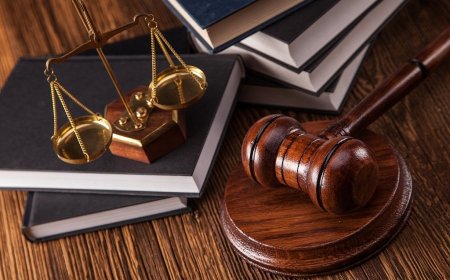How Criminal Lawyers in Dubai Support Clients Facing Deportation
Criminal lawyers in Dubai help challenge deportation orders, file appeals, and protect expats' rights through expert legal representation.

Understanding Deportation in the UAE Legal System
Deportation in Dubai is a serious legal consequence that often follows a criminal conviction. It can be mandatory or discretionary, depending on the nature of the offense. The UAE Penal Code allows for deportation orders in cases involving crimes such as drug possession, theft, assault, moral offenses, and immigration violations. For expatriates, deportation not only ends their stay in the country but can also damage their personal and professional lives. Criminal lawyers in Dubai play a pivotal role in protecting clients from such outcomes or minimizing the impact when deportation seems inevitable.
Assessing the Legal Grounds for Deportation
The first step criminal lawyers in Dubai take is to assess whether the deportation order is mandatory or can be challenged. Certain crimes, such as drug trafficking or serious violent offenses, automatically trigger deportation. However, for lesser offenses, the court may have discretion. Lawyers analyze the case details, review the judgment, and determine the legal standing of the deportation order. If the order is discretionary, there may be opportunities to request an exemption or present mitigating factors to the court.
Filing Appeals Against Deportation Orders
In situations where deportation has been ordered by a court, criminal lawyers can file an appeal before higher courts. They prepare comprehensive legal arguments supported by evidence, character references, and records of the clients contributions to the UAE. The appeal aims to overturn the deportation order or convert it into an alternative penalty. In many cases, appeals have been successful in securing the clients continued residence in Dubai, particularly for long-term residents or individuals with family and business ties in the country.
Petitions for Deportation Waiver
For clients facing non-mandatory deportation, criminal lawyers can submit petitions to the Public Prosecution or relevant judicial authorities for a waiver. These petitions usually include:
-
A detailed explanation of the circumstances of the offense
-
Evidence of good behavior and community service
-
Employment records or business contributions
-
Family responsibilities within the UAE
-
Assurances of non-repetition of the offense
The goal is to show the authorities that deportation would cause undue hardship and that the client deserves a second chance.
Representation in Deportation Hearings
When deportation proceedings are conducted through administrative channels, criminal lawyers represent clients in front of immigration or public prosecution departments. They ensure that the client is given a fair opportunity to present their case and that proper legal procedures are followed. Legal representation in such hearings is crucial to avoid arbitrary decisions and to highlight key aspects that may influence the outcome.
Negotiating Alternative Sentences
In some cases, criminal lawyers negotiate with the prosecution or the court for alternative penalties in place of deportation. This may involve payment of fines, suspended sentences, or community service. The success of such negotiations depends on the nature of the crime, the clients history, and the discretion of the judge or prosecutor. Lawyers ensure that all options are explored to protect the client from being forcibly removed from the country.
Support for Clients with Family in the UAE
For clients who have dependents, spouses, or children living in Dubai, deportation can cause extreme emotional and financial strain. Criminal lawyers in Dubai highlight these factors during appeals or mitigation hearings. They provide documentation of family ties, the schooling of children, and financial obligations to argue against deportation. Courts may be more inclined to consider leniency when the well-being of a family is at stake.
Handling Deportation Linked to Immigration Violations
Deportation can also occur due to immigration-related offenses such as overstaying visas, working without permits, or sponsoring fake dependents. In these cases, criminal lawyers collaborate with immigration consultants and use legal channels to rectify the situation, where possible. They may request visa status regularization, appeal bans, or file emergency motions to delay deportation until further review.
Crisis Response for Imminent Deportation
In emergencies where deportation is imminent, criminal lawyers act swiftly to file last-minute appeals or injunctions. These urgent legal measures can temporarily halt the deportation process and provide time to present a full case. The goal is to gain every legal advantage available before the client is removed from the country.
Assistance After Deportation Orders Are Enforced
If deportation is carried out, legal support may continue beyond the client's exit from the country. Lawyers assist with removing bans, applying for re-entry permission, or coordinating with authorities in the clients home country. In some cases, they also explore opportunities for a return under a different visa category after some time.
Why Legal Representation Matters in Deportation Cases
Facing deportation is often overwhelming and complex. Without proper legal support, individuals risk losing their residence, job, and family connections in Dubai. Criminal lawyers bring the experience, negotiation skills, and legal knowledge necessary to handle deportation proceedings effectively. They provide not just defense, but advocacy aimed at preserving dignity and securing the best possible outcome.
Conclusion
Deportation can have life-altering consequences, but with skilled legal intervention, many such outcomes can be challenged, delayed, or even reversed. Criminal lawyers in Dubai are equipped to fight for clients at every stage of the deportation process, from initial court rulings to last-minute appeals. Their role is essential in protecting the rights of expatriates and ensuring that justice is served with fairness and compassion.





























